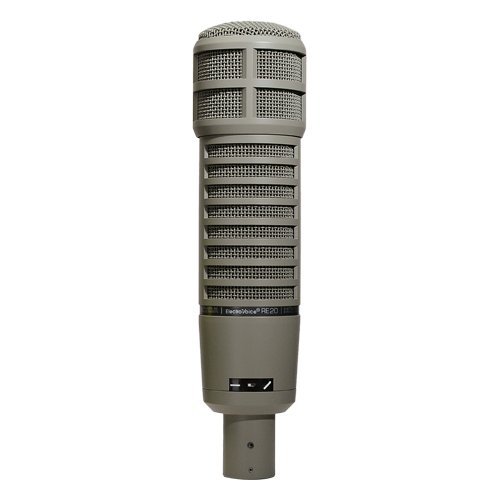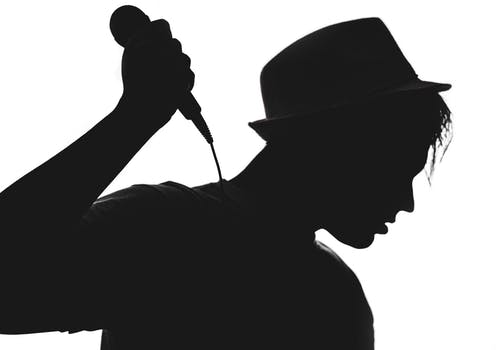This post contains references to products from one or more of our advertisers. We may receive compensation when you click on links to those products
Are you looking for the best microphone for screaming vocals?
You are probably thinking about starting your own studio and you want to record some screaming vocals?
Right? Then you should definitely read this article.
The truth is that screaming into a microphone causes a lot of problems with your audio file.
The most important one is clipping especially with metal vocals, which is really terrible if you have dealt with this issue before.
The best thing you can do is to get a good microphone that can handle vocals when screaming and save yourself some pain.
In this article, we will be looking at the top 5 best microphone for recording screaming vocals, tips to consider before you pick any mic, why you need a special microphone for recording screams and how to get the best from your microphone when recording.
IN A HURRY? HERE’S OUR TOP 3 PICKS…
|
Image |
Title |
Rating |
|
|---|---|---|---|
  |
Shure SM7B Vocal Dynamic Microphone |
||
  |
Electro Voice RE-20 Cardioid Microphone |
||
  |
Audio-Technica AT2035 |
Why you need a special microphone for screaming vocals
1. You want to avoid clipping
When recording vocals that are at a very loud volume like screams, the major thing you want to avoid is clipping.
Clipping according to Wikipedia is a form of wave distortion that happens when an amplifier is overdriven and attempts to deliver an output beyond it’s capacity
What this simply means is that clipping happens when you over work the microphone.
So basically you need a microphone that can handle this load and still deliver clear and crisp vocals.
2. You want versatility
Another thing you need to be aware of is that, when you get a mic that is ideal for screaming, it can also be used for other things such as singing and also rapping.
This will ensure that you get a microphone that is suitable and can be used for whatever you want in your studio.
Factors to consider before you buy a microphone for recording screams
1. What is your budget?
This is probably one of the most important factors you need to consider before you make a purchase.
Why?
Simply because a special microphone that can easily handle screams will set you back a couple hundred bucks.
If you were just recording vocals at normal levels, then you can get any microphone and record.
But for screaming vocals, then you should be ready to pony up some cash so as to get quality and durable microphone for your use.
2. What is the highest volume level it can handle?
You want to also make sure that the microphone you get can handle as much vocal level as possible without clipping.
The best way to make sure that you get this right is by checking and reading the product specifications before buying.
This will give you a good idea of how high you can go before the audio starts to clip.
3. How durable is it?
Also you want to make sure that your microphone is very durable.
This is because when screaming into your mic, it affects the inner workings of the microphone.
And if you get something that is not durable and cannot stand the test of time, then you are going to have a weak mic on your hands.
The best way to make sure you get this right is by buying well known brands and following expert recommendations like this article.
Related: Here is a detailed page about the best microphones
4. Is it a versatile mic?
I say versatile microphone simply because things change.
You may go from screaming vocals to a more subtle singing voice and you want something that can make that change with you.
This is why you need a mic that is versatile and can adapt to the changes and also give you quality audio.
Again the best way to get this right is to go with known and trusted brand names or to follow expert recommendations.
Our Top 5 Best Microphones for Screaming Vocals
1. Shure SM7B Vocal Dynamic Microphone
This is the industry standard when it comes to recording screams and for rock or metal.
It has a flat and wide range frequency response that helps it deliver clean and clear audio every time.
It has a unique body which helps to prevent and shield it from electromagnetic interference from your computer monitors.
This helps keep the audio quality very clean and clear.
It has an inbuilt highly effective pop filter which helps to prevent and combat plosives issues that may arise when recording.
Click for a more detailed review of the Shure SM7B Microphone
It has a detachable windscreen that prevents sibilance issues and also helps in giving your vocals a rich and warm tone.
It has a unique yoke mounting stand that makes it very easy to setup and begin recording.
It has a rugged construction and build that makes it very durable and it lasts for a very long time.
2. Audio-Technica AT2035 Condenser Microphone
This is a large diaphragm condenser mic that delivers smooth and natural sound with no noise.
It has high SPL handling and a wide dynamic range that provides good versatility.
It has a custom shock mount which provides good support and isolation when recording.
It has a cardioid polar pattern which helps to reduce picking up of external sounds from the rear and the background.
Click here for a detailed review of the AT2035 Microphone
This helps to give a crisp and clear audio quality every time.
It comes equipped with a protective pouch that prevents it from gathering of dust and also from wear and tear.
3. M-Audio Nova Condenser Microphone
This is a relatively cheap condenser microphone that delivers clear audio quality when used.
It has a unique 1 inch gold plated diaphragm that helps it produce smooth and accurate clear sounds.
It has a cardioid pickup pattern that makes sure that only vocals directly facing the microphone are picked up. This removes or reduces vocals from the rear and side of the mic.
Click for a more detailed review of the M-Audio Microphone
It is a solid built and class A product that helps in reducing noise and external interference when recording.
It is well built with solid brass body and capsule which protects it and ensure durability
It is very easy to setup and begin using and comes with a hard mount, soft case and XLR cable.
4. Shure SM58-LC Vocal Microphone, Cardioid
This is probably the most common and used microphone in the industry today.
This is because it has a frequency response that is especially tailored to vocals.
It comes with a built in wind pop filter that helps to deal with issues of sibilance
It has a unique pneumatic shock mount systems that helps to reduce noise and external vibrations.
It has a uniform cardioid pickup pattern that helps to isolate the main vocals and minimize all background noise from interfering.
Click for a detailed review of the Shure Sm 58
It has a rugged construction which makes it very reliable for use anywhere and anytime.
5. Electro Voice RE-20 Cardioid Microphone
This is a professional dynamic cardioid microphone that is suited for recording screaming vocals.
It comes with built in pop filters that helps to deal with issues of plosives and sibilance.
It has an internal element shock mount that helps to increase stability and reduce vibration noise.
Click here for a detailed review of the Electro Voice RE20
It has blast and wind filters which cover each acoustic opening ensuring that only the required vocals are picked up by the microphone.
Tips on how to get the best from your microphone when recording
- Use a pop filter. When recording vocals, you want to make sure that you use a pop filter to deal with all issues of sibilance and explosives. Doing so will save you lots of work when mixing.
- Stand a few meters away from the microphone when recording. This will ensure that your vocals do not become muddy and that the mic is able to properly isolate and pick up only your vocals.
- Make sure you use a mic stand as this will help keep the mic stable and reduce vibration noises from your recording
- Check and make sure that the Gain on your Preamp are properly set. This will help prevent clipping and also make sure your vocals get the needed boost.
- Make sure that your recording room is well treated and that you get the acoustics right. A well treated room will go a long way in taking your vocals from “moderate” to awesome.
Frequently Asked Questions
1. Can screaming damage your voice?
The simple answer is “YES” if not properly taken care of
The truth is that problems to your voice arise from overuse or straining the vocal cords excessively
So things like screaming, inhaling irritants and talking too loud might cause some damage to your vocal cords
Here is an article I wrote showing you different types of metal screams and how to do them properly.
2. Can anyone learn to scream?
Definitely…
You can learn at any age and like all other forms of singing, it takes the right technique and constant practice to make it.
You also need to make sure that you are full of energy to pull it off though.
Check out my article here where I showed you some screaming techniques you can try out today
3. Who started screaming in metal?
Thrash metal was influenced both by heavy metal and by hardcore punk, the latter of which often incorporated shouted or screamed vocals.
The first instance of screaming used as a constant delivery of lyrics was Chuck Schuldiner of the band Death.








Thanks for the information